This project is a research I carried out with a team of 4 during my training period at
Meltwater Entrepreneurial School of Technology (MEST).
We had individually noticed
a pain in the way School Career Fairs are organized and we decided to work together and conduct research based
our problem hypothesis, figure out if they are actual problems and how we could solve them.
UX Researcher
Oct 2017 - Nov 2017
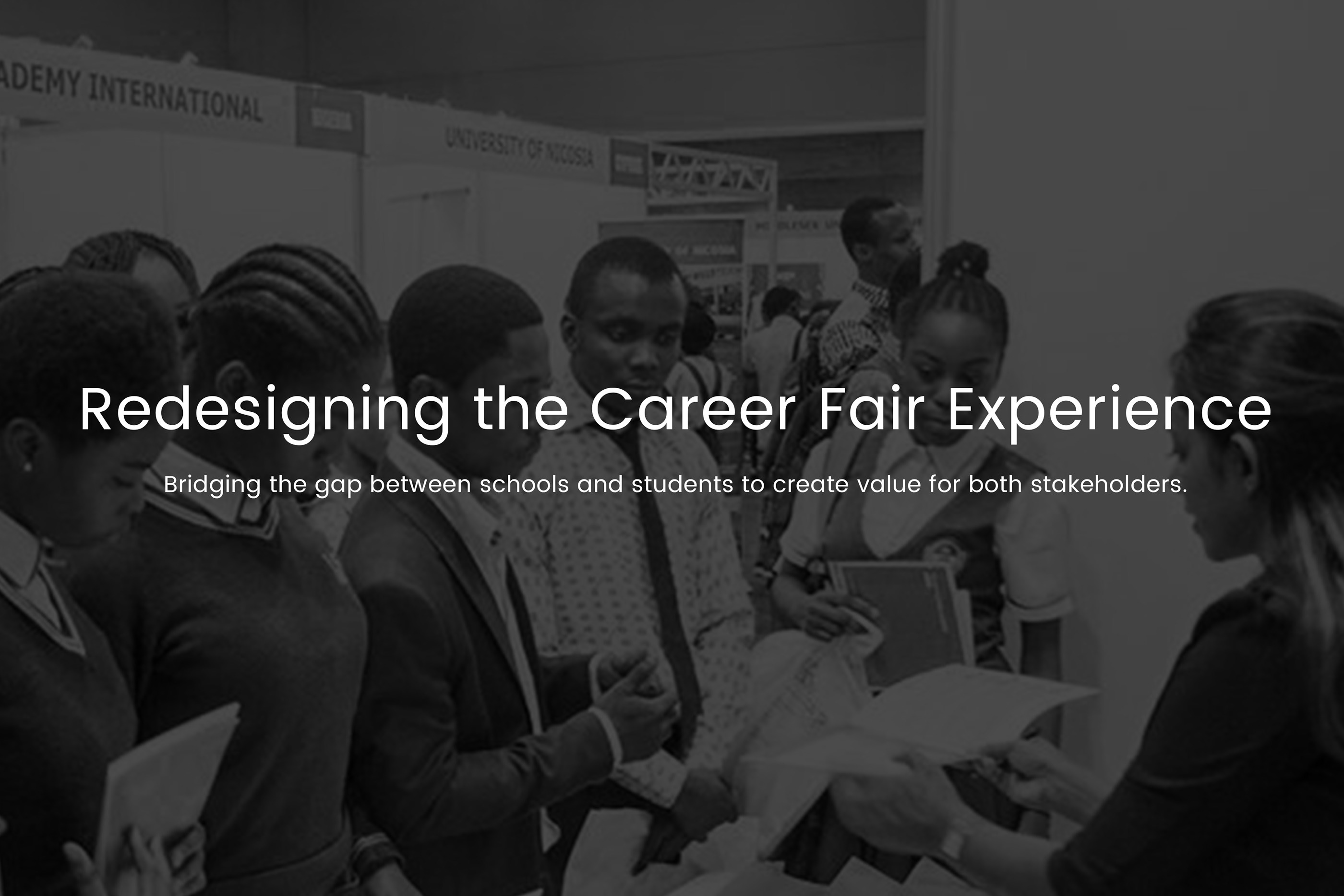
Each quarter, some Ghanaian educational local brands in conjunction with select Universities abroad organizes career fairs for students / graduates
to network with the Universities for possible admission to further studies at those schools.
However, students / graduates face some pain points throughout the process of preparing for
and eventually attending a career fair, these problems often negatively impact their overall experience of these events.
So we asked ourselves:
"How can we help these students by addressing their pain points?"
We decided to apply appropriate user research methods by gathering insights from both
students/graduates and event organisers to help us refine our problem hypothesis
around their experiences at career fairs.
Interestingly, an event was coming up in a school near our campus.
We decided to reach out to the organisers so we can interview people coming for the event and they agreed.
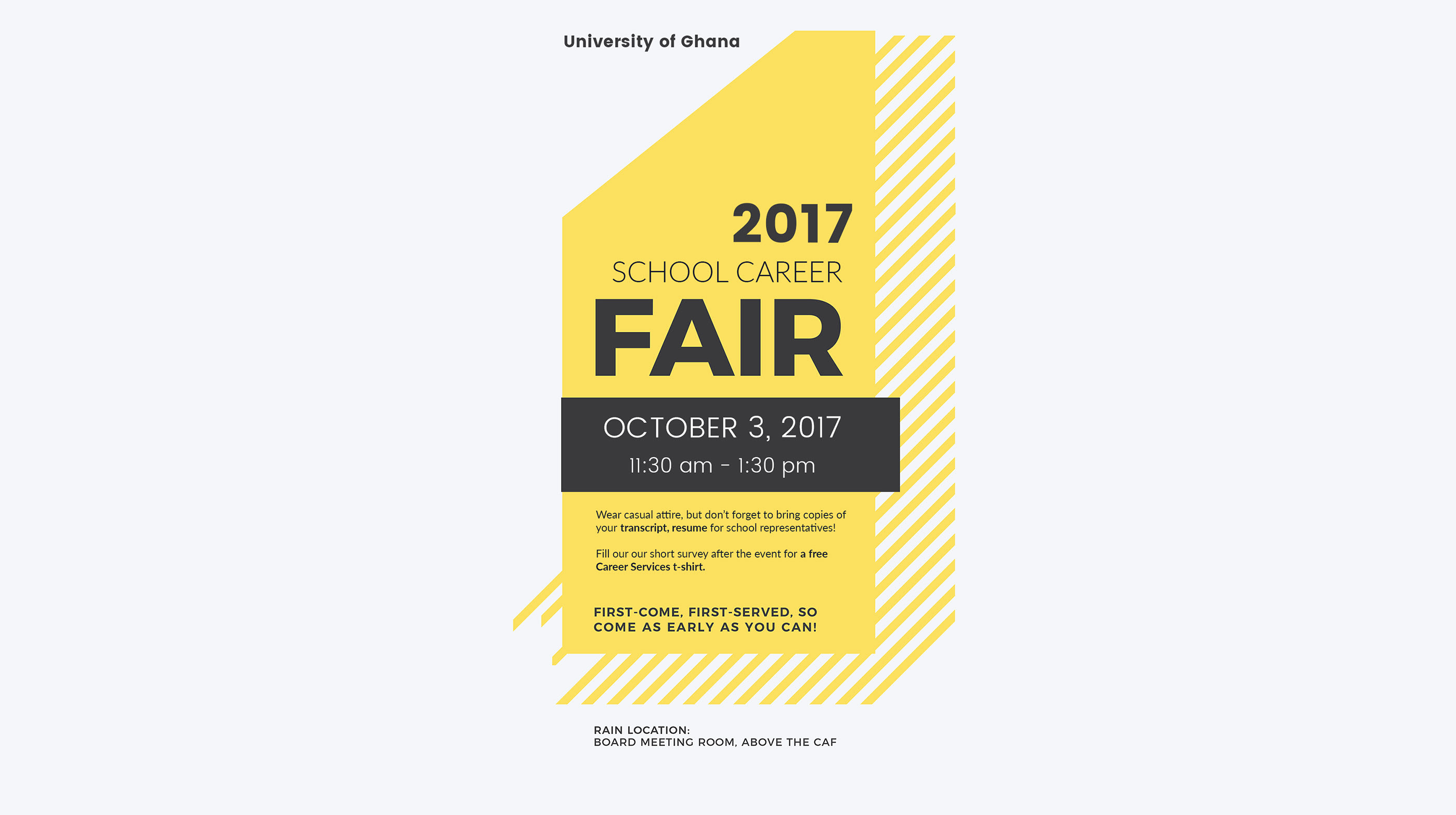
While speaking with the career services team, We wanted to learn about the entire process of how career fairs are arranged and also the feedback students provide after the event. It was particularly interesting to hear how the team tries to create a good balance between providing maximum information to students beforehand and not nagging the school's reprsentatives, asking them to provide the same.
Preparing for a career fair and attending it one can all be combined into one single experience that
the attendees go through. Hence, we wanted to connect with people and talk to them about their
experiences with these events. We conducted one to one user interviews with 10 students who attended
the career fair event. The goal of the interview was to elicit their stories, emotions, thoughts,
actions, and pain points.
Having spoken to our target users, it was fairly easy to move down to understand their characteristics.
Based on these characteristics, we designed a high level provisional persona.
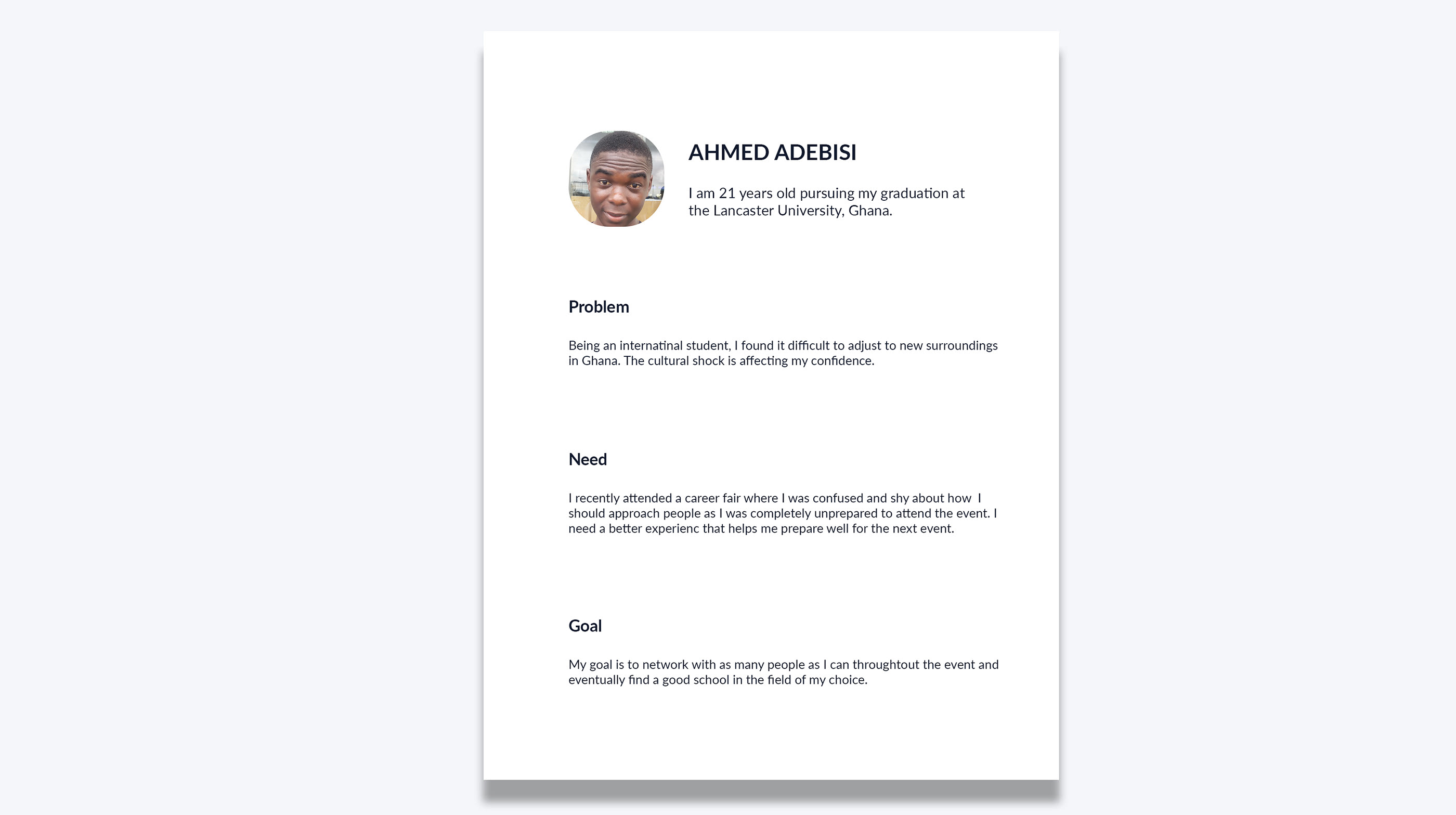
To dive deeper into the qualitative data we collected from the user interviews, we created a user journey map. Based on the journey map, we could list down all the problems faced by users and the opportunities where we could create an intervention.
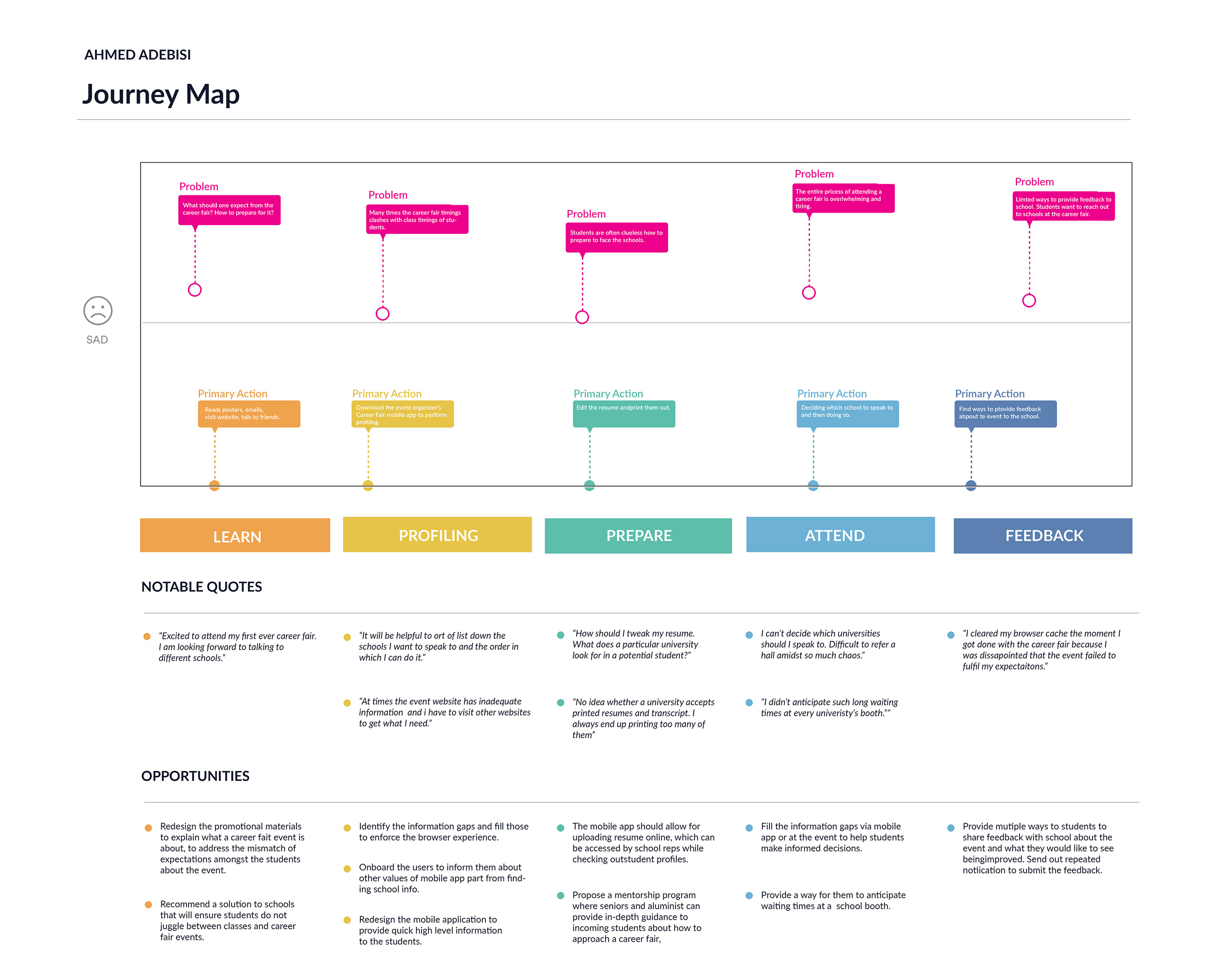
With some strong insights collected from the user research and heuristic evaluation of the existing process,
we understood what areas to focus on for making an improvement, and started ideating on the solution (mobile app).
Some of the primary ideas that we arrived on and eventually included as a part of the final solution are:
To make the solution we are coming up with intuitive and easy-to-use we drew the user flow and navigation.
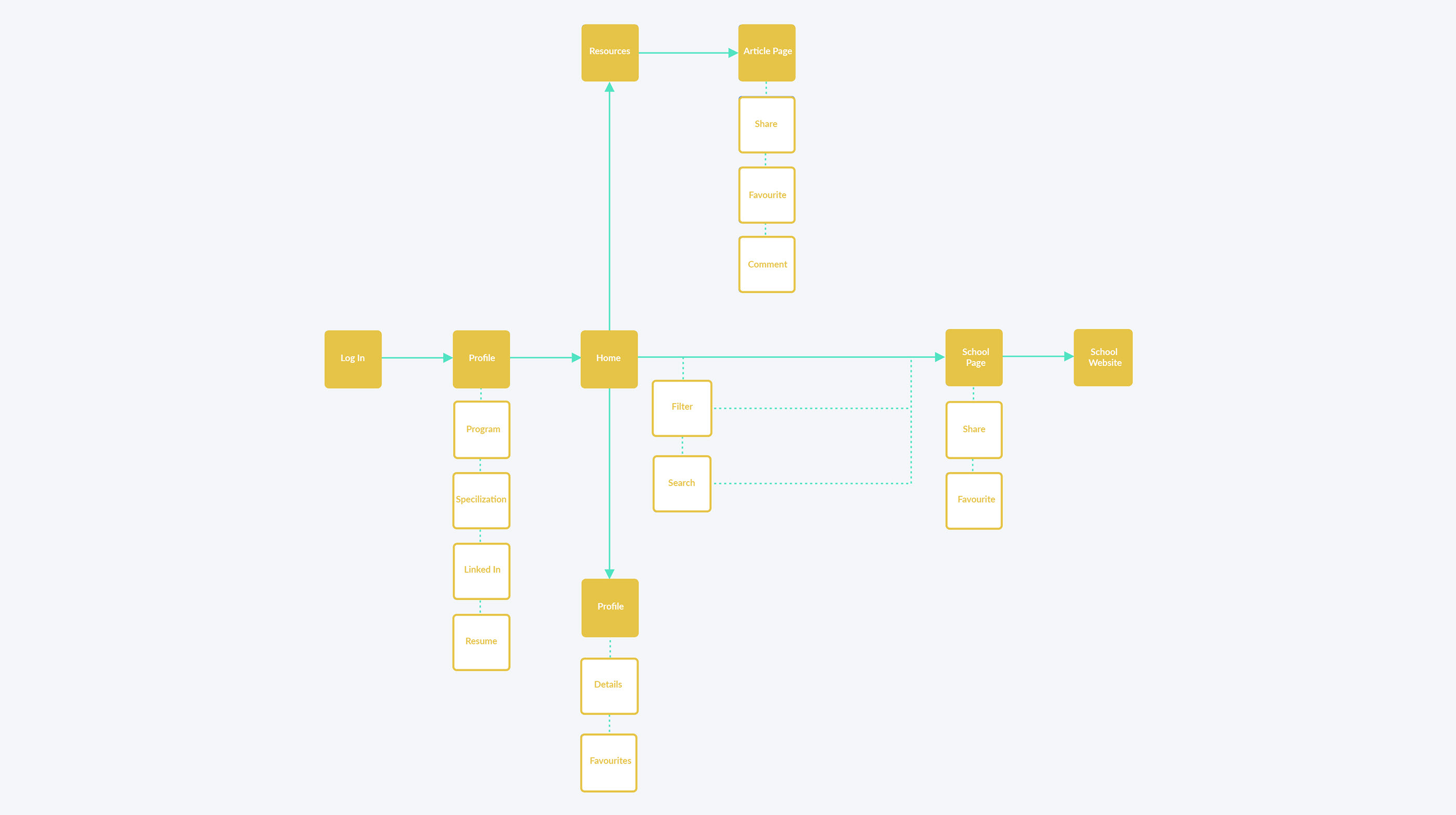

The usability testing method we adopted for this project was a blend of two methods - concept walkthrough and summative usability testing with a clickable prototype. The mobile app design received a positive response from the students, especially the inclusion of quick overview of grad school requirements. The inclusion of resources received mixed feedback from students, where some students were unsure of how the app provides a different experience than that other tech blogs.
In terms of future improvements, a lot would depend on the response the first major update gathers when we eventually build the app i.e. if there is an increase in the number of students who are willing to adopt the app as a primary resource to prepare for career fairs. It'll be interesting to explore if we can implement a chat feature or integrate it with existing apps like Slack or Messenger to allow to interact with each other before and during the event.